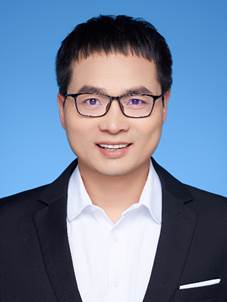
一、基本信息
李自民,男,汉族,1986年4月生,河南鹿邑人,副研究员、博士、硕士生导师
先后⼊选⽐利时国家FNRS学者(2019年)、陕西省高层次人才计划(2023年)、中国科学院“百⼈计划”(2023年)、中国科学院高层次人才计划(优秀)(2024年)。获国家优秀留学生奖(全球评选500人)(2018年)和加拿大土壤学会Benno Warkentin学术奖(全球评选3人)(2020年)。曾主持比利时国家自然科学基金、比利时-法国国际合作交流项目、陕西省人才项目、中国科学院人才项目和国家重点实验室重点培育等项目。现任黄土科学全国重点实验室副主任,担任国际SCI期刊Geoderma编委和Biochar、Carbon Research、Carbon Neutrality等国际期刊青年编委及Nature Geoscience、GCB、ESR、ES&T和Ecology Letter等国际主流期刊的审稿人。
从事学科专业:土壤学
电子邮箱:lizimin@ieecas.cn
联系电话:19591517105
二、个人经历
u 教育经历
起止时间 |
学习单位 |
专业 |
层次 |
201311-201904 |
比利时法语鲁汶大学 |
土壤学 |
博士 |
201009-201307 |
浙江农林大学 |
土壤学 |
硕士 |
200609-201007 |
河南城建学院 |
环境科学 |
学士 |
u 工作经历
起止时间 |
工作单位 |
所属部门 |
职称/职务 |
202310-至今 |
中国科学院地球环境研究所 |
地表过程与生态环境研究室 |
副研究员 |
201905-202309 |
比利时法语鲁汶大学 |
|
博士后 |
201301-201302 |
澳大利亚南十字大学 |
地球科学院 |
访问学者 |
三、研究方向和招生专业
u 研究方向
主要从事硅循环与全球变化研究,聚焦于“植物-土壤系统植硅体的生物地球化学”;利用土壤过程模拟、动力学和微量元素示踪等地球化学方法,结合室内和野外土壤-植物系统控制实验,研究植物源植硅体在生态系统中的循环及其对全球变化的响应。
u 招生专业
硕士招生专业:地质学、环境地球科学、地质工程
四、社会兼职
u 学术组织
黄土科学全国重点实验室 副主任
u 期刊任职
担任国际学术期刊Geoderma编委
Editorial Advisory Board青年编委
Biochar青年编委
Carbon Research青年编委
Carbon Neutrality青年编委
u 期刊审稿人
长期为Nature Geoscience、Global Change Biology、Environmental Science & Technology和Earth-Science Reviews和Ecology Letter等国际主流期刊的审稿人。
五、科研成果
u 科研项目
1. 比利时国家科学研究基金会(FNRS)博士后研究员基金(Charge de Recherches),土壤团聚过程对植硅体储存和溶解的影响,2019-10至2022-09,已结题,主持。
2. 瓦隆-布鲁塞尔国际组织(WBI)比利时-法国国际合作交流项目,表层土壤成土过程中植物可利用性硅动态影响因子的研究,2020-06至2022-06,已结题,主持。
3. 比利时国家科学研究基金会(FNRS)博士青年研究员基金(Aspirant),生物碳对硅生物地球化学循环反馈机制的研究,2015-10至2019-09,已结题,主持。
4. 比利时政府以及法语鲁汶大学专项研究员基金(FSR),生物炭修复对硅-碳耦合生物地球化学循环的影响,2014-10至2015-09,已结题,主持。
5. 陕西省高层次人才引进项目,2023-10至202610,在研,主持。
u 代表性论文
1. Li Z, Wang Y, Yue K, Yang Y, Song Z. Why are readily soluble phytoliths more resilient? Earth-Science Reviews, 2025,105105.
2. Zimin Li, Yunqiang Wang, Zhaoliang Song. Developing new varieties of deep-.ooted crops: silicon and agroecosystem services. npj sustainable agriculture, 2025, 3(1): 2.
3. Zimin Li, Jean-Dominique Meunier, Bruno Delvaux. Goethite affects phytolith dissolution through clay particle aggregation and pH regulation. Geochimica et Cosmochimica Acta, 2023, 349: 11-22.
4. Zimin Li, Jean-Dominique Meunier, Bruno Delvaux. Aggregation reduces the release of bioavailable silicon from allophane and phytolith. Geochimica et Cosmochimica Acta, 2022, 325: 87-105.
5. Zimin Li, Jean-Thomas Cornelis, Charles Vander Linden, Eric Van Ranst, Bruno Delvaux. Neoformed aluminosilicate and phytogenic silica are competitive sinks in the silicon soil-plant cycle. Geoderma, 2020, 368: 114308.
6. Zimin Li, Félix de Tombeur, Charles Vander Linden, Jean-Thomas Cornelis, Bruno Delvaux. Soil microaggregates store phytoliths in a sandy loam. Geoderma, 2020, 360: 114037.
7. Zimin Li, Dácil Unzué-Belmonte, Jean-Thomas Cornelis, Charles Vander Linden, Eric Struyf, Frederik Ronsse, Bruno Delvaux. Effects of phytolithic rice-straw biochar, soil buffering capacity and pH on silicon bioavailability. Plant and Soil, 2019, 438(1): 187-203.
8. Zimin Li, Bruno Delvaux. Phytolith-rich biochar: a potential Si fertilizer in desilicated soils. Global Change Biology Bioenergy, 2019, 11(11): 1264-1282.
9. Zimin Li, Bruno Delvaux, Johan Yans, Nicolas Dufour, David Houben, Jean-Thomas Cornelis. Phytolith-rich biochar increases cotton biomass and silicon-mineralomass in a highly weathered soil. Journal of Plant Nutrition and Soil Science, 2018, 181(4): 537-546.
10. Zimin Li, Zhaoliang Song, Jean-Thomas Cornelis. Impact of rice cultivar and organ on elemental composition of phytoliths and the release of bio-available silicon. Frontiers in Plant Science, 2014, 5: 529.
u 学术专著
Bruno Delvaux; Zimin Li, 《Encyclopedia of Soils in the Environment》, Second Edition, Silicon and other non-metal elements from Group 14, Elsevier, 2023.
